DU SciTech Camps Immerse Middle School Girls in STEM Fields
Professors receive new type of DU grant to continue public good work
By Madeline Phipps
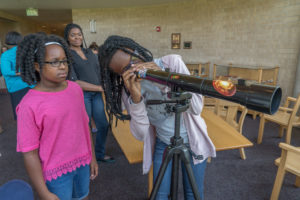 On April 19, the Center for Community Engagement to advance Scholarship and Learning (CCESL) announced that professors Shannon Murphy, Robin Tinghitella and Jennifer Hoffman had received a BRIDGE grant for their project, DU SciTech 2019: Building STEM identification and scientific self-efficacy with girls of color in Denver.
On April 19, the Center for Community Engagement to advance Scholarship and Learning (CCESL) announced that professors Shannon Murphy, Robin Tinghitella and Jennifer Hoffman had received a BRIDGE grant for their project, DU SciTech 2019: Building STEM identification and scientific self-efficacy with girls of color in Denver.
Murphy, Tinghitella and Hoffman held their first DU SciTech summer camp in 2016, thanks to a grant from DU’s Public Good Fund, which has invested in community-engaged scholarship since 2001. “We loved every minute of interacting with campers and introducing them to exciting topics in science and math,” says Tinghitella, assistant professor of biological sciences. “From day one we were hooked and began looking for sustainable external funding to support our work long-term.”
It’s not the dollar amount that makes a BRIDGE grant noteworthy; instead of funding a project for its entire lifespan, the grant is able to provide a safety net for projects that are seeking long-term or sustainable funding.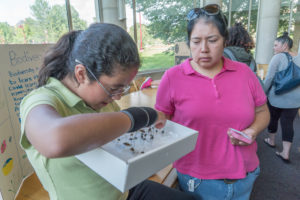
“Community-engaged research and creative work relies on partnerships with communities,” says Anne DePrince, director of CCESL and professor of psychology. “Disruptions in funding can threaten the stability and potential for impact of these partnerships. Until now, there hasn’t been funding available to keep community-engaged projects going as faculty work towards long-term, sustainable external funding.”
Because of DU IMPACT 2025’s focus on community-engaged work dedicated to the public good, projects like the DU SciTech Camps are becoming more commonplace on the DU campus.
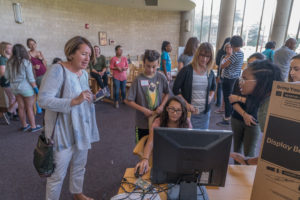 This summer, the professors will run their third DU SciTech camp. “Support from the BRIDGE grant will allow us to bring 16 middle school girls from diverse backgrounds to campus for a weeklong day camp at no cost to their families, and to take home all camp materials including a computer, a telescope and tripod, and a professional-grade insect collection kit,” says Shannon Murphy, associate professor of biological sciences. In addition to the student campers, six female graduate students will serve as camp counselors to provide further female mentorship.
This summer, the professors will run their third DU SciTech camp. “Support from the BRIDGE grant will allow us to bring 16 middle school girls from diverse backgrounds to campus for a weeklong day camp at no cost to their families, and to take home all camp materials including a computer, a telescope and tripod, and a professional-grade insect collection kit,” says Shannon Murphy, associate professor of biological sciences. In addition to the student campers, six female graduate students will serve as camp counselors to provide further female mentorship.
The group has bigger plans in mind for the project beyond this summer as well. “In the future, we would love to reach more girls by offering more than one camp per summer and to extend our interactions with campers through follow-up events, school-year activities, and even research-based camps that bring the girls into our labs for summer research,” says Hoffman, associate professor of physics and astronomy.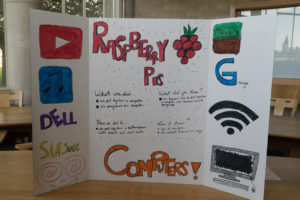
“The BRIDGE Grants are incredibly important because they allow faculty to continue and deepen established community partnerships while they work towards sustainable funding for these successful projects” DePrince says.
This summer’s camp runs Aug. 5-9. Interested parents of girls who have completed sixth, seventh or eighth grades are welcome to contact the leadership team at duscitech@gmail.com.
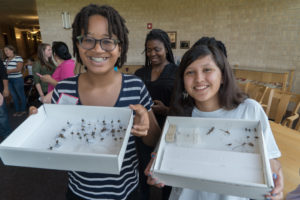


Recent Comments